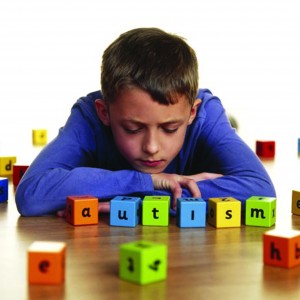Understanding Autism
By Dr Rajini Sarvananthan, Consultant Developmental Paediatrician
MBBS (HONS), MMEDSc in CHILD HEALTH, MRCP, MRCPCH, Sunway Medical Centre
Autism is a developmental disorder which affects a child’s ability to communicate and relate to other people, and is accompanied by certain restricted and repetitive behaviours. A more simplistic way of looking at it is that the child’s brain has developed differently and has difficulties ‘making sense of the world’. People with autism often perceive things differently from us.
Often, people use the term ‘Autistic Spectrum Disorder’ as autism is a spectrum condition which affects people in varying degrees – some are able to lead independent lives despite their social and communication impairments, while others need carers with them.
How is it different from Asperger syndrome?
Asperger Syndrome is also an autistic disorder which is characterised by difficulties in social communication, interaction and social imagination. They, too, have difficulties in relating to others, processing information and making sense of what is around them, but have fewer problems with speaking and are often of above average intelligence. Despite this, they can have specific learning disorders too, e.g., dyslexia.
What causes autism?
This is an exciting era as there is a lot of research trying to identify a cause for autism. What is clear is that there are abnormalities in the developing brain of an autistic child that may not arise from just one single cause. There is also increasing evidence that the condition is genetic. Multiple genes and their interaction with environmental factors are more likely to be responsible rather than a single gene. There is a lot of misconception about diet and vaccines being a cause of autism. There is no strong evidence which suggests that diet is a cause despite the many dietary interventions explored by parents. There is also now strong medical evidence which disputes the claim that MMR vaccine is a cause for autism.
Is there a difference between how it affects boys and girls?
Autism and Asperger syndrome affect boys more than girls at a ratio of approximately 4:1. There is no clear reason why, and researchers have suggested it may be due to genetic differences. However, cases are often missed in girls as they may not exhibit the same symptoms as boys.
What symptoms should I look out for in my child?
Researchers such as Greenspan have identified some warning signs which require further evaluation over time. These are:
- No back and forth sharing of sounds and gestures at nine to 12 months
- No babbling at 12 months
- No single words at 16 months
- No two-word spontaneous phrases by 24 months
Parents are often concerned about the lack of speech in their children, which prompts a visit to the doctor. Often, however, the lack of interaction in an infant is one of the first signs. Other signs are related to the lack of sharing of interests, e.g., not drawing their parents’ attention to objects or events around them.
Poor imitation and play skills (e.g., lack of pretend play by 18 months) with certain repetitive behaviours (e.g., lining up toys in the same way) and resistance to change may also be present from an early age. Children with Asperger often have normal early speech development but their unusual behaviour may prompt parents to seek help. Children with autism can also have delays in other aspects of development.
Who should I consult if I am concerned my child has autism?
First, consult your GP or paediatrician. There are screening questionnaires such as the Modified Checklist for Autism in Toddlers (M-CHAT) which they may administer. Diagnosing autism often takes time. It often involves observing the child’s play, communication and interaction over a longer period of time, as well as interviewing parents. There are specific tools used by trained professionals to assist in clinical diagnosis. Professionals such as paediatricians, child psychiatrists and clinical psychologists are able to diagnose autism.
Is there a cure?
At present, there is no cure for autism, but there are various helpful interventions. While some interventions have good evidence to support their use, many more have surfaced which may be harmful. Just as autism affects children in different ways, different interventions may help different children and it is important that each intervention is evaluated based on their benefits and harm to each child. Examples of interventions with supportive evidence include Applied Behaviour Analysis (ABA) therapy, communication interventions and behavioural interventions.








